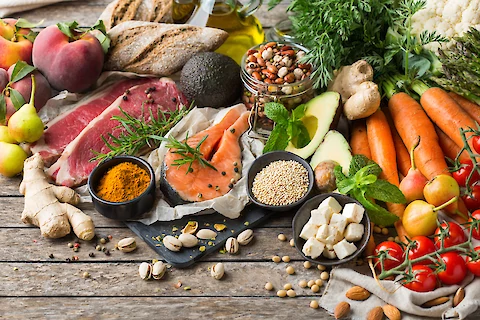
Maintaining a healthy heart becomes increasingly vital to overall well-being as we age. For seniors, adopting a heart-healthy diet is one of the most effective strategies to support cardiovascular health. This transition doesn't need to be overwhelming, and it's never too late to start.
The Importance of a Heart-Healthy Senior Diet
Prioritizing cardiovascular health is paramount at any age, but even more so for older adults. The heart, a vital organ that pumps blood throughout the body, can become more vulnerable with age. A balanced, nutrient-filled diet plays a significant role in supporting heart health. From leafy greens to omega-3 fatty acids, the appropriate dietary modifications can help fortify your cardiovascular health while minimizing heart-related complications later in life.
Basics of a Heart-Healthy Diet
A heart-healthy diet is a balanced meal plan that sustains your heart and blood vessels. It typically involves consuming various nutrient-dense foods from all the food groups. Incorporate lean proteins, colorful fruits and vegetables, whole grains, and sources of healthy fats like nuts and seeds into your meals.
Portion control, an often overlooked aspect, is equally important. Consuming appropriate serving sizes helps maintain a healthy weight and prevents overeating. You don't have to eliminate your favorite treats. Just remember to enjoy them in moderation. Minimize your intake of saturated fats, trans fats, cholesterol, sodium, and added sugars to enhance the benefits of your heart-healthy diet.
Easy-To-Implement Nutrition Tips for Seniors
Adapting to a heart-healthy diet can be achievable with some simple modifications. Opt for skinless poultry, lean cuts of beef or pork, and non-fatty dairy products like low-fat milk, yogurt, and cheese. These options are lower in saturated fats, which can help reduce the risk of heart disease.
Increase your consumption of omega-3 fatty acids, which promotes cardiovascular health. Fatty fish like salmon, mackerel, and sardines are great Omega-3 sources. Make them part of your meals at least twice a week.
Fill your plate with a variety of vegetables and fruits. These are rich in dietary fiber, vitamins, and minerals that can help manage cholesterol levels. A colorful plate is usually a good indicator of a balanced meal.
Reduce your sodium intake. High sodium consumption can increase blood pressure, which can strain the heart and blood vessels. Limit processed foods and use herbs and spices for flavor to help you cut back on salt.
Role of Caregivers in Promoting a Heart-Healthy Diet
Family caregivers can help facilitate heart-healthy diets for seniors. Offering wholesome meal and snack options simplifies choices for seniors. They can make meal times a shared activity for seniors to look forward to. Engaging older adults in meal preparation, where possible, helps. This doubles as a bonding moment and an opportunity for seniors to feel involved. Caregivers must also remember to keep the atmosphere positive and patient, as it takes time for dietary changes to become habits.
Get Assistance With Meal Prep From Senior Helpers Tulsa
Investing in cardiovascular health through proper nutrition is a lifelong commitment. With the right mindset and appropriate support, you’re well on your way to maintaining a heart-healthy lifestyle in your golden years.
If you need an extra hand with meal prep or with other aspects of daily living, Senior Helpers Tulsa can help. We provide professional in-home care for seniors in Tulsa, McAlester, Broken Arrow, and Sand Springs. Contact us today to learn more about our services and how we can help.